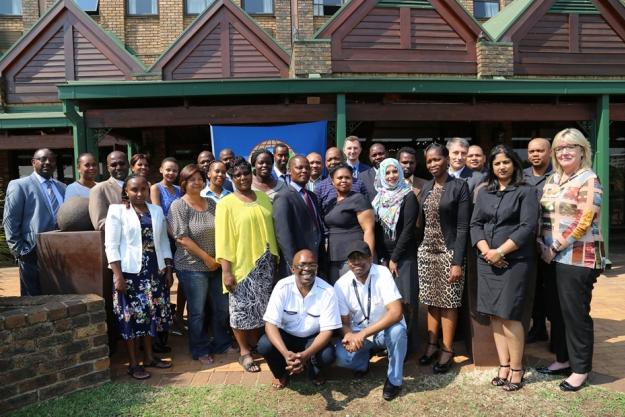
Participants at a Subregional Training Course for Customs Officials from East and Southern African States Parties on the Technical Aspects of the Transfers Regime held in South Africa
The OPCW, in cooperation with the National Authority of the Republic of South Africa, organised a subregional training for customs officers from Eastern and Southern African States Parties on the technical aspects of the transfers regime of the Chemical Weapons Convention (CWC) held in Centurion, South Africa, from 13 till 16 October 2015.
The course, designed in cooperation with the World Customs Organisation (WCO) comprised a mix of presentations, practical exercises and group discussions. Customs officials were trained to detect and identify scheduled chemicals, discussed experiences and good practices in controlling trade in chemicals, as well as examined and shared practices of reporting on imports and exports. The course was conducive to reinforcing subregional cooperation between the customs of the represented States Parties which would contribute to the effective implementation of the CWC.
In her opening remarks Melanie Reddiar, Acting Head of the Secretariat to the National Authority of the Republic of South Africa, emphasised the important role played by customs officers in maintaining the transfers regime of the CWC as well as the need to strengthen cooperation between the customs and their respective National Authorities. “It is only through good collaboration with all relevant stakeholders, including the customs, that the States Parties can ensure effective implementation of the Convention”, she concluded.
The course was funded by the European Union as part of the OPCW Africa Programme. It was attended by 30 participants from 14 States Parties, including Burundi, Ethiopia, Kenya, Malawi, Mauritius, Mozambique, Namibia, Seychelles, Somalia, South Africa, Swaziland, Tanzania, Uganda and Zimbabwe.
